 Sakhis promote clean energy products through weekly market stalls.
Swayam Shikshan Prayog
Sakhis promote clean energy products through weekly market stalls.
Swayam Shikshan Prayog
 Sakhis promote clean energy products through weekly market stalls.
Swayam Shikshan Prayog
Sakhis promote clean energy products through weekly market stalls.
Swayam Shikshan Prayog
After completing high school, Shanta Gawali’s parents selected a husband for her, a farmer in a small village in Maharashtra state in western India. They married, had two children and supported their family with farming. To supplement their modest income, Gawali and five other women ran a home-based business producing and packaging snacks, including homemade pickles, masala (spice mix) and papad (dry flat bread). They built their business on a modest investment of $83 and brought in a small income each month as a result of their hard work.
Among rural families in India, wives are expected to work in the home and not seek outside income opportunities, but Gawali had the skills and interest, and she persevered. While she already had a small snack business, she was eager to do more—while helping her community at the same time.
That’s when Gawali discovered Swayam Shikshan Prayog (SSP), an Indian sustainable community development organization that focuses on women’s empowerment.
In 2012, USAID awarded SSP a $1 million, three-year grant to implement the Partnership on Women’s Entrepreneurship in Clean Energy (wPOWER) program in India. wPOWER aims to popularize the concept of clean energy and the environment by empowering female entrepreneurs to educate people in their communities on the benefits of using clean energy products—and make them customers. The female entrepreneurs also sell household products such as clean cookstoves and solar lights. Already, the project is expanding to at least four countries in Africa, aligning with the goals of the Power Africa initiative.
Preema Gopalan, director of SSP, explains that “their mission is to empower grassroots women economically and socially to assume new entrepreneurship roles and build their business capacities to create impact.” Gopalan sees clean energy as an emerging market that can “provide a vast opportunity for building last mile networks,” off-the-grid communities not connected to electricity lines.
SSP and USAID have discovered one solution that solves two problems: the need for clean energy in India and the need for motivated, capable women to become self-sustaining businesswomen. SSP provided Gawali the opportunity to expand beyond her small, home-based business while building on her entrepreneurial skills, her motivation to work hard, her willingness to collaborate with others and her desire to better provide for her family. Gawali was able to continue her home snack business while also generating income from her sales of clean energy products to people in her community.
The wPOWER India program aims to provide 1,000 rural women with training in entrepreneurship, and marketing, sales and servicing of the products they sell. Products include cookstoves, solar lanterns, biogas and solar water heaters. Smaller products, such as pellets, are chosen and purchased by the women entrepreneurs for resale, but for higher priced items, such as solar home lighting systems, the women entrepreneurs first generate interest in the sale and then get the item on demand through partner companies. The women and the partner companies each take a small commission on the sales they make.
SSP estimates that over a three-year period, the women entrepreneurs will reach approximately 200,000 households in India. Further, wPOWER India aims to create collaboration between communities and local governments to help women like Gawali expand the reach of their businesses and education campaigns while enabling them to reach 13 of India’s most climate-threatened rural districts.
But the program’s impact goes beyond clean energy and women’s economic well-being. India is the third top polluter in the world, after China and the United States. A recent World Health Organization (WHO) outdoor air quality report found that India is home to six of the top 10 cities with the highest air pollution. India’s capital, Delhi, tops the list with the highest rate of air pollution in the world. Outdoor air pollution killed 3.7 million people worldwide in 2012 and is now the world’s largest single environmental health risk.
And the energy demanded by Indians —already 18 percent of the world’s population—is set to increase by 132 percent by 2035, according to the BP Energy Outlook 2035. With one-fourth of India’s population still without access to electricity, affordable, innovative clean energy products hold tremendous promise not only for India, but the entire planet.
Taking the Show on the Road
By educating households and providing access to clean energy products that meet daily needs, wPOWER’s women entrepreneurs, or Sakhis, are making progress charting a new path forward. As of May 2014, 583 Sakhis have been trained and initiated into the clean energy businesses in the Indian states of Maharashtra and Bihar. Using road shows, weekly market stalls and on-the-spot demonstrations, these Sakhis have taught 350,000 people how to use clean energy products in their own homes—and sold 80,000 products. Over the past two years, Sakhis have increased their incomes by 33 percent.
Gawali’s experience with wPOWER showed that it isn’t just about the money. Her association with wPOWER has made her an agent of change in her community. “After I got associated with wPower,” Gawali explains, “it not only provided a channel for earning an income but also provided appreciation, recognition and much higher status in the community for the work I was doing. Today, people across 300 villages know me for my work.”
To provide Sakhis with an additional source of income and contribute to a sustainable clean energy sector in India, wPOWER created a district-level platform called the “Clean Energy Hub.” The Hub brings together organizations from the public and private sectors and financial institutions to forge partnerships with Sakhis, who will market additional products in villages.
SSP has developed a prototype Clean Energy Hub in Latur, a city in Maharashtra state, that is already functioning and providing these services. Through the Clean Energy Hub, Sakhis forge new partnerships that expand their knowledge and inventory of clean energy products they sell and service.
Many of these green devices have positive effects on the Sakhis’s families, the environment and consumers. For example, the use of clean fuel cookstoves has reduced carbon emissions and indoor air pollution, lowering health risks and the onset of respiratory illnesses.
“After buying the Oorja advanced cookstove that uses biofuel, I have minimized the use of fuel wood,” said Seetabai Bansode of Dapegaon village in Maharashtra state. “We no more have a smoke-filled dark kitchen.”
In addition, the program supports solar lighting solutions that allow men and women to farm later into the evening and allow children to have more study time.
Sunita Salunke of Motegaon village in the Latur district said that, “electricity supply being very bad in our village, my children had to study using kerosene lamps. I knew it was harming their eyes, so I purchased a d.light S 20 solar lamp. We were so happy with the solar lamp that we bought another one to carry it to the fields.”
From India to Africa
Based on its initial success in India, wPOWER has expanded to East Africa—Kenya, Uganda, Rwanda and Tanzania—and to Nigeria. The program aims to empower more than 8,000 female entrepreneurs in these countries to educate and provide clean energy access to more than 3.5 million people.
Participants in the wPOWER India program recently traveled to Kenya to share lessons learned with participants from the African countries and, early next year, wPOWER Africa plans to send African women entrepreneurs to India. In this way, the program acts as an exchange between the regions, bringing together clean energy representatives from five African countries and India to share successes and develop the program further.
wPOWER India teams are now working with the wPOWER Hub at the Wangari Maathai Institute in Kenya to plan and implement best practices and innovations such as how to make briquettes from charcoal and a mud mixture or promoting tree planting by providing seeds with a product sale.
“The launch of the India to Africa exchange on July 14 [2014] is a milestone in the wPOWER India journey and aims to fast track women’s leadership to grow green economies,” said Gopalan.
USAID’s mission in India is committed to scaling and promoting the global transfer of proven development innovations through programs like wPOWER, says Kathryn D. Stevens, deputy mission director at USAID/India.
“India has a wealth of experience in development to share with the world, not only in terms of technology, but in engaging people in finding new ways to improve lives,” Stevens said. “The wPOWER program is a great example of harnessing that energy to promote female empowerment through the clean energy sector.”







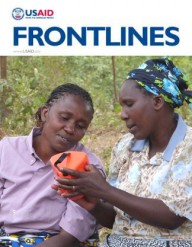


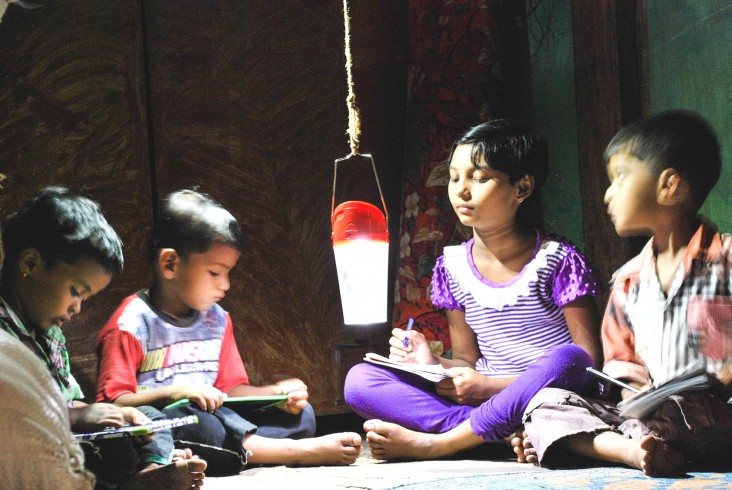
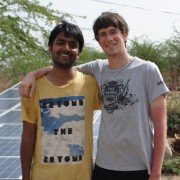
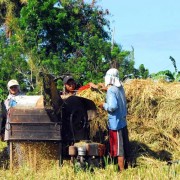
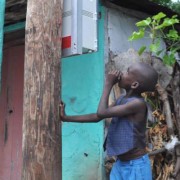
Comment
Make a general inquiry or suggest an improvement.